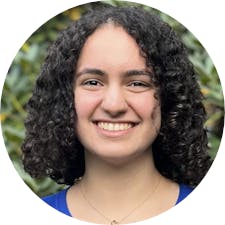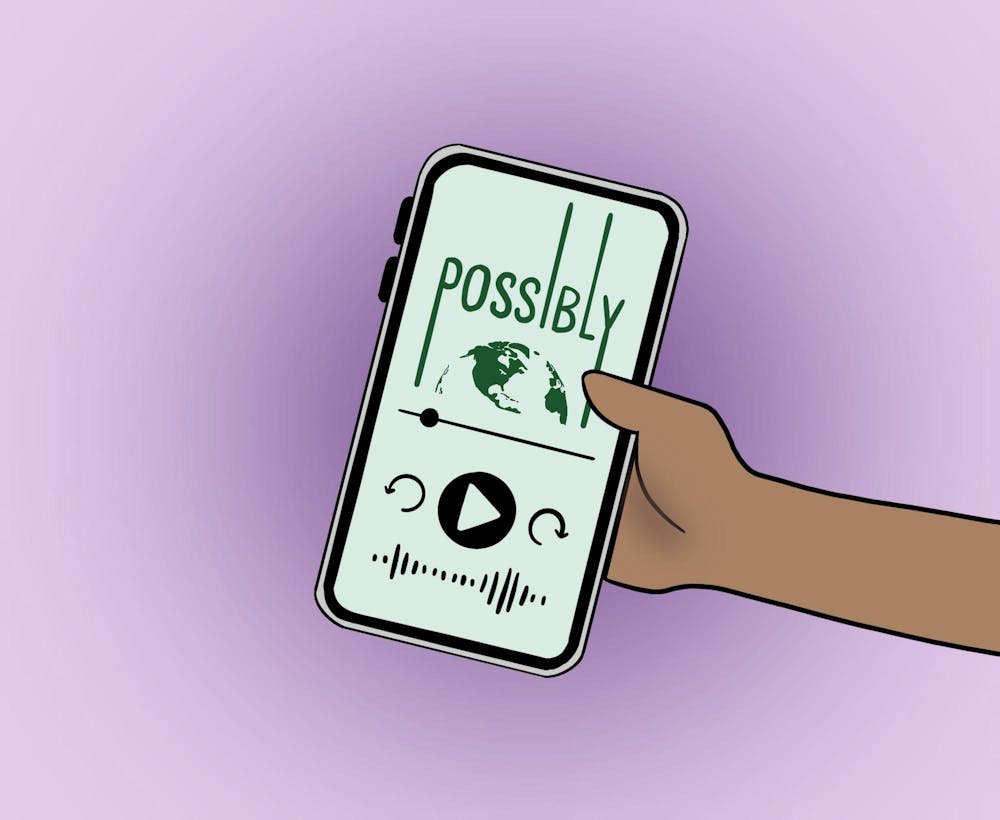Why is it so cold in libraries? How did wild turkeys return from local extinction? The world is full of complex environmental questions. But “Possibly,” a student-reported podcast at Brown, is working to provide simple answers.
Co-produced by The Public’s Radio and Brown’s Institute for Environment and Society, “Possibly” four-minute episodes address different questions about environmental concerns “ranging from those about personal choices to huge systemic issues,” podcast reporter Will Malloy ’25 wrote in an email to The Herald.
Student reporters often pitch their own topics for the podcast, but can also answer questions from listeners that are submitted through the podcast’s website.
This format keeps the show “fresh and exciting” since “episodes are typically about things we are passionate about and are interested in learning more about,” Malloy wrote.
Megan Hall ’04 MPH’15, the host and managing producer of “Possibly,” said the podcast was created to provide an “accessible” way for listeners to learn about climate change.
“People often get paralyzed by all the things they feel like they’re supposed to do,” Hall said. “So we wanted to create a show that helps people sort through the noise and understand what kind of personal actions they can take that will make a difference.”
Malloy joined “Possibly” after taking Hall’s class, “ENVS 1421: Podcasting for the Common Good,” which teaches students how to report and produce a podcast. The course is geared towards first-years and sophomores, and many students go on to join the podcast team, Hall explained.
Charlie Adams ’25, a student reporter for the podcast, emphasized the range of climate experts and advocates that he has interviewed while reporting on his segments.
“I have this real appreciation for the breadth of folks working on this issue, which is really inspiring as a journalist,” Adams said.
Being from Rhode Island, Malloy has enjoyed traveling around the state to report on local issues.
“I’ve gotten to go to all kinds of places for the show, from local beaches to a research vessel with folks from (the University of Rhode Island), or even the main wastewater treatment facility for the state,” Malloy wrote.
Student reporter Cameron Leo ’25 said the “collaborative environment” of the podcast team has allowed her to strengthen her research and reporting skills. Working directly with professional climate journalists like Hall has been “really formative,” she said.
Stephen Porder, cofounder of “Possibly” and a professor of biology at Brown, noted that the episode length was designed with National Public Radio programming in mind — public radio stations can air the “Possibly” episodes during a “natural break” in NPR content.
“Possibly” recently announced their mission to air the podcast in all 50 states. The team has been conducting outreach to public radio stations around the country.
Airing the podcast around the country “can help bring environmental journalism stories and reporting to places that can’t fund them otherwise,” Adams said.
Porder described the podcast’s more than 250 episodes and expanding national reach as “mind-blowing” for him. “Five years ago, when we started the show, that would have seemed unimaginable,” he wrote in an email to The Herald.
The podcast’s focus on local climate action highlights the work of individual communities to ensure climate resilience, which Leo said will be crucial under an incoming administration which many predict will roll back federal climate policies.
“I think under a federal administration that’s super unfriendly to climate action … individual action is going to be more important than ever,” Leo said. “I have a lot of hope from talking to people across New England for the podcast that communities and localities are up for the task.”
According to Hall, the podcast will continue to cover new developments in climate change research and policy.
“I’m really excited to see all of the ways people are innovating and finding practical ways to be resilient and responsive to climate change, despite whoever is in charge,” Hall said.

Sophia Wotman is a University news editor covering activism and affinity & identity. She is a junior from Long Island, New York concentrating in Political Science with a focus on women’s rights. She is a jazz trumpet player, and often performs on campus and around Providence.





